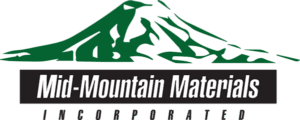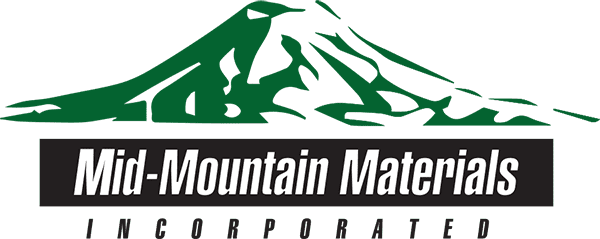Originally published on 01/26/22. This article has been updated with the latest information on vertical integration.
The past few years have exposed deep vulnerabilities in global supply chains, particularly for manufacturers dependent on specialized insulation materials and coatings. From labor shortages and transport delays to rising costs and limited raw material availability, the manufacturing process has become increasingly complex to manage.
At Mid-Mountain Materials, Inc., we’ve positioned ourselves to weather these disruptions by embracing a business strategy centered on vertical integration. As a fully integrated company, we control every stage of the production process, from textile weaving to proprietary coatings and product fabrication. This structure offers not only greater control and cost savings, but also enables us to deliver a consistently high quality product to our customers—on time and at scale.
Why Vertical Integration Matters in 2025
Supply chain instability continues to affect industries that rely on thermal insulation, composites, and high-performance textiles. Ongoing shortages in fiberglass, para-aramid, and coating chemicals have delayed shipments and pushed up material costs. Global freight capacity remains stretched, and raw materials are often subject to geopolitical pressure, tariffs, and inflation.
In such an environment, control over the supply chain has become a critical asset. Companies dependent on external suppliers are frequently exposed to delays, price hikes, and quality variability. But for vertically-integrated manufacturers like Mid-Mountain, the ability to manage every step of the manufacturing process provides stability, speed, and flexibility.
There are different types of vertical integration, but our model includes backward integration—we produce core materials like woven fabrics—and forward integration, where we fabricate finished components in-house. This complete oversight allows us to increase efficiency, drive cost-efficient production, and respond rapidly to customer needs.
The Strategic Advantage of Vertical Integration
Our vertical integration gives us a competitive edge in both normal and disrupted market conditions. Here’s how:
- End-to-End Quality Control: From base fabrics to custom coatings and final assemblies, we monitor and test every element. This results in high quality, reliable products, even for mission-critical applications like thermal protection system (TPS) components and aircraft firewall insulation.
- Faster Lead Times: We avoid delays common to fragmented supply chains by owning our stages of production—from raw material preparation to final product delivery.
- Cost Savings and Reduced Costs: Internal production cuts out middlemen, reduces markups, and brings down unit costs over the long term, enabling us to offer cost-efficient solutions without compromising on quality.
- Product Customization: Because we manage each stage of production, we can create custom configurations of thermal insulation materials with specific temperature ranges, shapes, or certifications.
- Innovation Flexibility: Our R&D and fabrication teams work side by side, accelerating the development of novel materials and advanced solutions—like our flue insulation wrap jacket or engine blanket firewall systems.
Vertical Integration in Action: THERMOPAK® Solutions
At Mid-Mountain, our THERMOPAK® product line exemplifies the power of vertical integration. Here are just a few highlights:
THERMOPAK® Crucible Lid Seal Gaskets
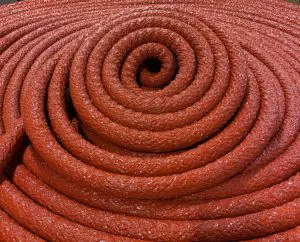 Used in high-temperature containment systems such as boilers, baghouses, and furnaces, these gaskets are manufactured in multiple configurations. Whether built with a fiberglass core and silicone rubber coating or an overbraided rubber center, each seal delivers excellent compression and thermal resistance.
Used in high-temperature containment systems such as boilers, baghouses, and furnaces, these gaskets are manufactured in multiple configurations. Whether built with a fiberglass core and silicone rubber coating or an overbraided rubber center, each seal delivers excellent compression and thermal resistance.
Thanks to vertical integration, we can tailor every component—down to the thread—to meet customer-specific pressure and temperature requirements.
THERMOPAK® External Cathode Bar Seals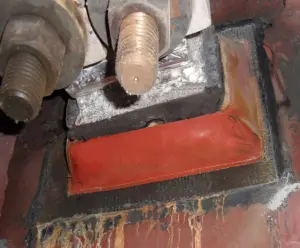
Used in the Hall-Héroult process for aluminum smelting, our cathode bar seals offer a hermetic, heat-resistant seal between the cathode and the smelter wall. These seals integrate four of our proprietary components, including ARMATEX® Coated Fabrics, HYTEX® Kevlar cord, and THERMOSEAL® Moldables—each produced in-house to ensure unmatched performance and longevity.
THERMOPAK® Fabricated Tadpole Tape
Our fabricated thermal insulation systems include custom-engineered tadpole tapes designed to seal expansion joints and access doors in high-heat environments. We manufacture both the inner bulb and outer cover materials, allowing complete flexibility in size, shape, and insulation rating. This makes them ideal for pipe work insulation and duct systems.
THERMOPAK® Robot Covers
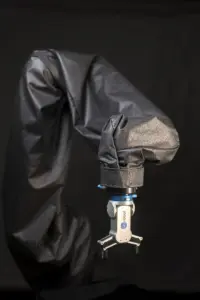 Our robot protection systems are constructed from our high-performance ARMATEX® SBN 13-692 ROBOTEX fabric—a silicone-coated material engineered to resist extreme heat, abrasion, and corrosive exposure. Because we handle coating and fabrication internally, we can deliver customized solutions with fast turnaround and competitive pricing.
Our robot protection systems are constructed from our high-performance ARMATEX® SBN 13-692 ROBOTEX fabric—a silicone-coated material engineered to resist extreme heat, abrasion, and corrosive exposure. Because we handle coating and fabrication internally, we can deliver customized solutions with fast turnaround and competitive pricing.
Case Study: Vertical Integration in Complex Projects
Our ability to manage all stages of production proved invaluable during our collaboration with the U.S. Department of Energy and Battelle Engineers NW. Together, we developed a Geodesic Dome Tent using ARMATEX® materials to contain emissions during in-situ vitrification—a process used to neutralize hazardous ground waste. All elements, from coated fabrics to the final assembly, were completed in-house, demonstrating how vertical integration accelerates timelines and improves quality assurance.
Similarly, the development of our cathode bar seals illustrates vertical integration in action. Instead of sourcing each element from separate vendors, we engineered the full stack in-house—reducing cost, improving quality, and eliminating delays.
Tailored Thermal Protection for Demanding Industries
From fire seals for aircraft to aircraft firewall insulation, our vertically-integrated process allows us to develop high-spec solutions for industries that require absolute reliability. We understand the regulatory, environmental, and technical requirements of sectors including:
- Aerospace and defense
- Primary metals
- Petrochemical and energy
- Automotive and heavy industry
Whether you need a custom flue insulation wrap jacket or a high-performance engine blanket firewall, our team will collaborate with you from concept through production—delivering innovative, compliant, and cost-effective solutions.
A Smarter Way to Manufacture
Today’s market demands more than just quality components—it requires agile, adaptive solutions that can evolve with changing needs. Our vertically-integrated manufacturing model allows Mid-Mountain to meet those demands with unmatched efficiency, responsiveness, and precision.
As supply chain pressures persist, businesses are learning that success depends not just on sourcing the right materials—but on owning the process that turns those materials into quality products.
Looking for a partner that can deliver consistency, customization, and energy efficiency—all with built-in supply chain resilience? Explore what Mid-Mountain’s integrated manufacturing model can do for your next project.
References and Further Reading
- What Happened to Supply Chains in 2021? Council on Foreign Relations https://www.cfr.org/article/what-happened-supply-chains-2021.
- A growing global potato shortage is affecting french fries, from Japan to Kenya. Washington Post.
- Sparkes, M. There’s a global shortage of computer chips – what’s causing it? New Scientist https://www.newscientist.com/article/2271918-theres-a-global-shortage-of-computer-chips-whats-causing-it/.
- Goodman, P. S. How the Supply Chain Broke, and Why It Won’t Be Fixed Anytime Soon. The New York Times (2021).
- Farrer, M. Global supply chain crisis could last another two years, warn experts. The Guardian (2021).
- Container shortage hits textile exports The Times of India https://timesofindia.indiatimes.com/city/ahmedabad/container-shortage-affecting-textile-exports/articleshow/111848537.cms
